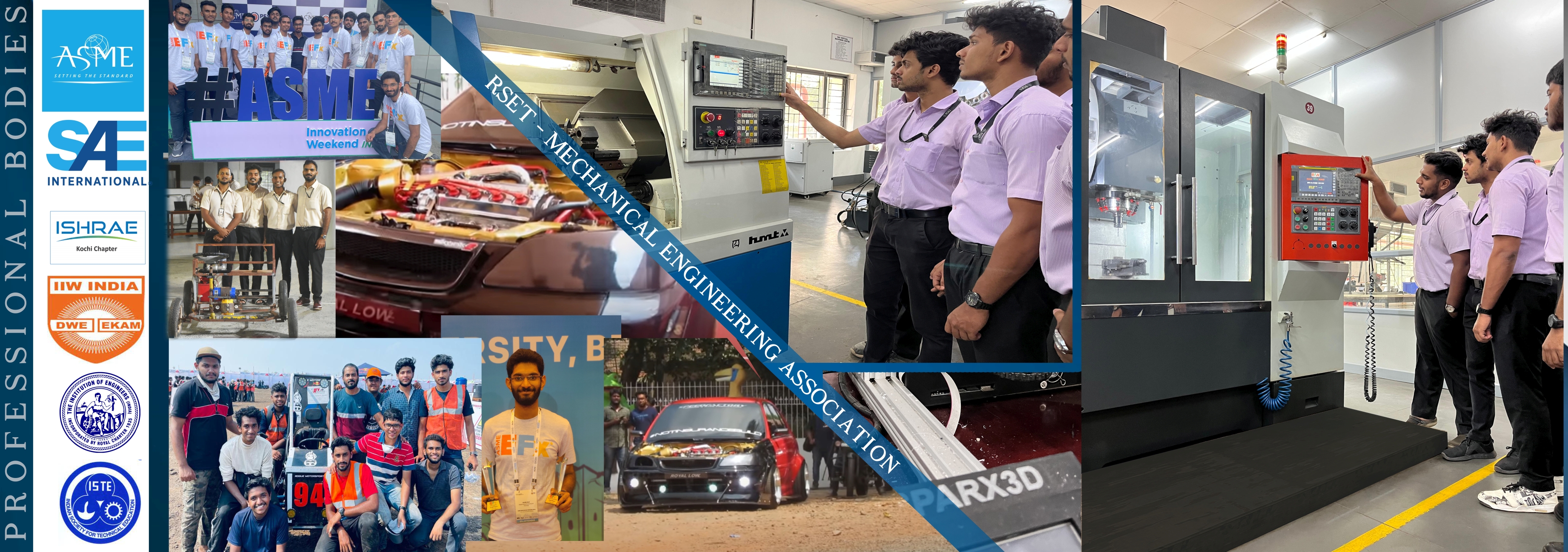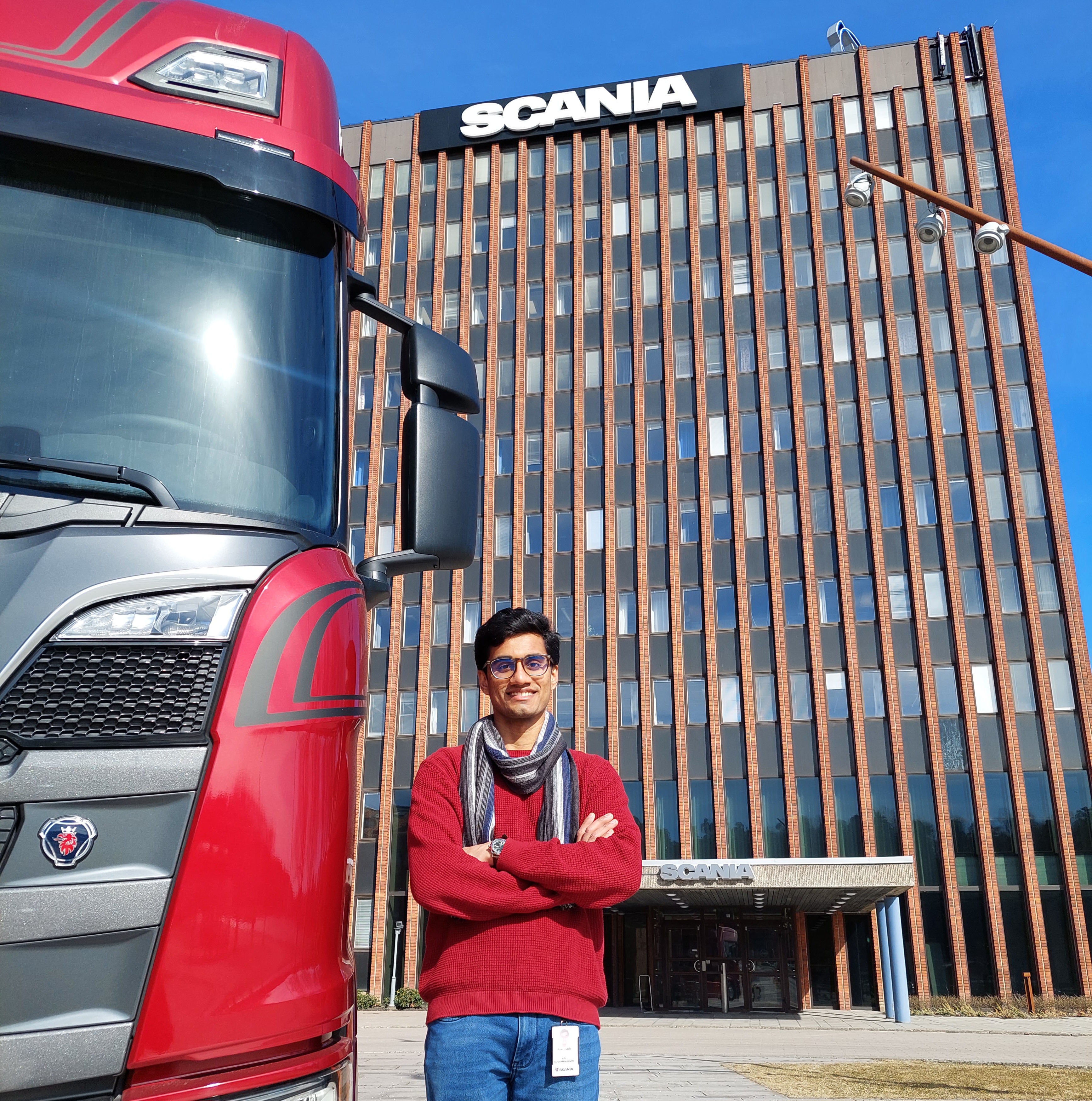Department of Mechanical Engineering
*NBA ACCREDITED PROGRAMME
Department of
Mechanical Engineering
Established in the year 2012 with an initial intake of 60 students in 2011, the Department of Mechanical Engineering has progressed by leaps and bounds in all respects in a short span of time. Presently the department admits 120 students per year to its undergraduate study programme. The department has attracted highly qualified and experienced personnel from various streams of Mechanical Engineering as its faculty.
The department has successfully established various research groups working independently or in collaboration with various industries (NPOL, Tata Ceramics etc.) towards meaningful goal driven research activities. Such ventures ensure industry-institute interaction that puts theory into practice thereby improving the overall quality of academia. Supported by 9 state-of the-art laboratories, the department has categorized its various research activities under Energy Research Group (Solar & Thermal Systems); Computer Aided Engineering Group (FEA & CFD); Manufacturing Engineering Group (Production, Materials, Metallurgy & CAD/CAM).
The department is a front-runner in organizing result oriented workshops for its student community. 'AcceleroBotix' by Technophilia Systems and Robotics & Computer Applications Institute of USA, 'Sphere Drone: Design Fabrication & Flying' by AerotriX Bangalore, 'National Weld Meet: Kochi 2015’ by The Indian Institute of Welding (IIW- Branch Cochin), ‘Hexapod Robotics’ work shop by Dalvik Apps and ‘Autodesk Fusion 360’ training are a few significant examples. MOUs has been signed with IIW and HMT to share facilities and expertise in order to improve welding technology through advanced research and education. The department has signed MoU with Yextreme Technologies Pvt Ltd for facilitating the advanced machining Laboratory for the projects from ISRO etc in exchange of industrial technical expertise for student skill development .
Keeping in view the challenging job-market awaiting its students, the department ensures that they are equipped with industry relevant skills during their curriculum. Training programmes on CATIA, ANSYS, CFD, AutoCAD, and CNC part programming are conducted on a regular basis which benefits both students and the faculty. Department has started a student chapter for ASHRAE (American Society of Heating, Refrigerating and Air-Conditioning Engineers) which is first of its kind in Kerala.
International learning and knowledge propels students towards acceptance and understanding of an array of different cultural, community perspectives. Department has initiated various student exchange programs with foreign universities like Sojo University, Japan, Hochschule Aalen University, Germany.
To evolve into a centre of excellence by imparting professional education in mechanical engineering with a unique academic and research ambience that fosters innovation, creativity and excellence.
- To have state-of-the-art infrastructure facilities.
- To have highly qualified and experienced faculty from academics, research organizations and industry.
- To develop students as socially committed professionals with sound engineering knowledge, creative minds, leadership qualities and practical skills.
Within a few years of graduation, the candidate is expected to have achieved the following objectives:
PEO 1: Demonstrated the ability to analyze, formulate and solve/design engineering/real life problems based on his/her solid foundation in mathematics, science and engineering.
PEO 2: Showcased the ability to apply their knowledge and skills for a successful career in diverse domains viz., industry/technical, research and higher education/academia with creativity, commitment and social consciousness.
PEO 3: Exhibited professionalism, ethical attitude, communication skill, team work, multidisciplinary approach, professional development through continued education and an ability to relate engineering issues to broader social context.
Engineering Students will be able to be:
- Engineering Knowledge: Apply the knowledge of Mathematics, Science, Engineering fundamentals, and Mechanical Engineering to the solution of complex engineering problems.
- Problem analysis: Identify, formulate, review research literature, and analyze complex Engineering problems reaching substantiated conclusions using first principles of mathematics, natural sciences, and Engineering sciences.
- Design/development of solutions: Design solutions for complex Engineering problems and design system components or processes that meet the specified needs with appropriate consideration for the public health and safety, and the cultural, societal, and environmental considerations.
- Conduct investigations of complex problems: Use research based knowledge and research methods including design of experiments, analysis and interpretation of data, and synthesis of the information to provide valid conclusions.
- Modern tool usage: Create, select, and apply appropriate techniques, resources, and modern engineering and IT tools including prediction and modeling to complex Engineering activities with an understanding of the limitations.
- The Engineer and society: Apply reasoning informed by the contextual knowledge to assess societal, health, safety, legal and cultural issues and the consequent responsibilities relevant to the professional Engineering practice.
- Environment and sustainability: Understand the impact of the professional Engineering solutions in societal and environmental contexts, and demonstrate the knowledge of, and the need for sustainable developments.
- Ethics: Apply ethical principles and commit to professional ethics and responsibilities and norms of the Engineering practice.
- Individual and team work: Function effectively as an individual, and as a member or leader in diverse teams, and in multidisciplinary settings.
- Communication: Communicate effectively on complex Engineering activities with the Engineering Community and with society at large, such as, being able to comprehend and write effective reports and design documentation, make effective presentations, and give and receive clear instructions.
- Project management and finance: Demonstrate knowledge and understanding of the Engineering and management principles and apply these to one’s own work, as a member and leader in a team, to manage projects and in multi-disciplinary environments.
- Life -long learning: Recognize the need for, and have the preparation and ability to engage in independent and life- long learning in the broadest context of technological change.
PSO 1: Apply their knowledge in the domain of engineering mechanics, thermal and fluid sciences to solve engineering problems utilizing advanced technology.
PSO 2: Successfully apply the principles of design, analysis and implementation of mechanical systems/processes which have been learned as a part of the curriculum.
PSO 3: Develop and implement new ideas on product design and development with the help of modern CAD/CAM tools, while ensuring best manufacturing practices.

.jpg)




.jpg)